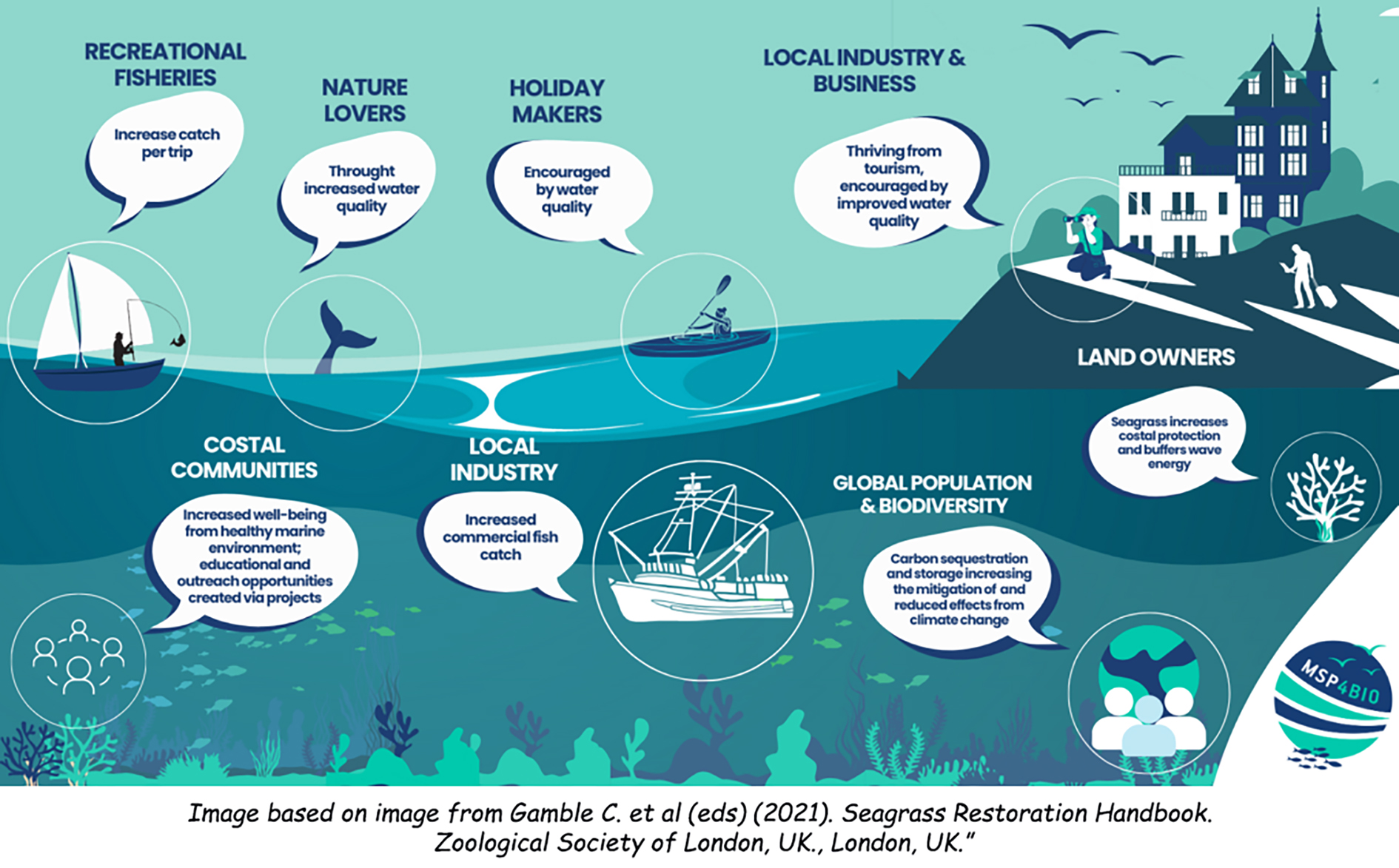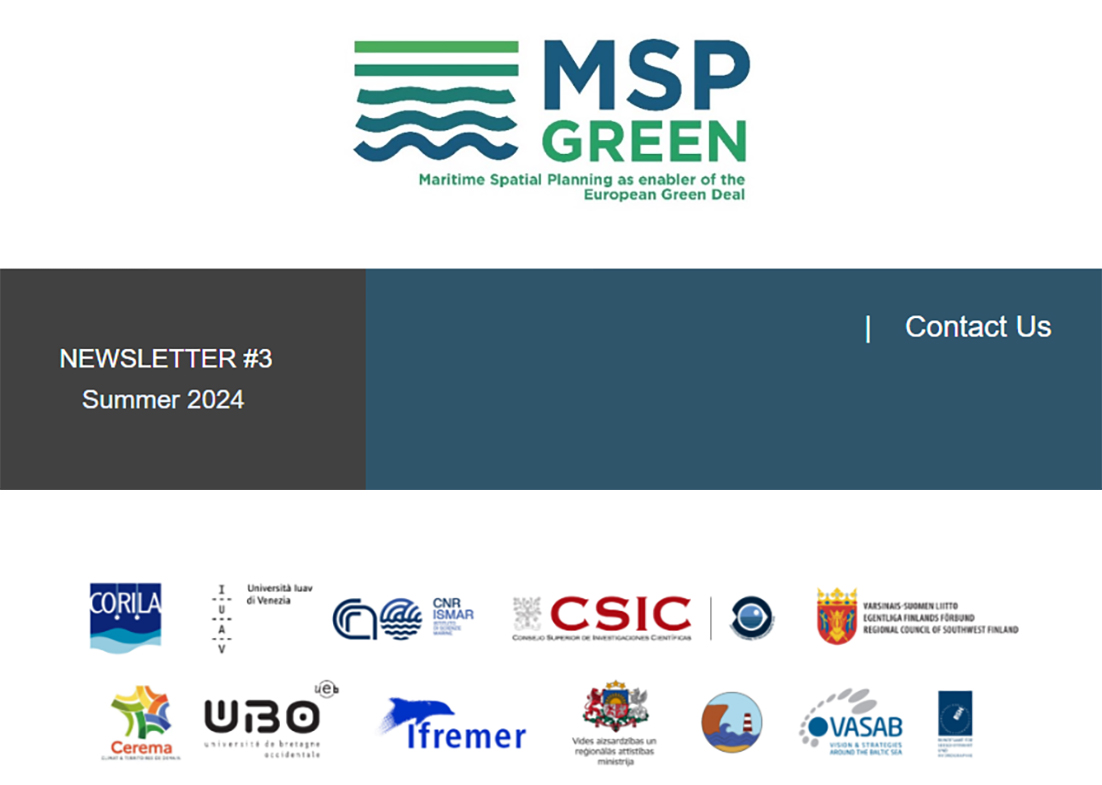News
Resent study from MSP4BIO: mitigating marine threats with restoration measures
In the light of the challenges posed by climate change, restoring ecosystems that have been degraded, damaged or destroyed allows nature to bounce back and flourish.
Discover three impactful types of restoration measures employed across the marine environments surrounding the MSP4BIO test sites.

Authors:
Martina Bocci, CNR Italy
Tea Marasovic, PAP/RAC
Ivan Sekovski, PAP/RAC
In May 2020, the European Commission adopted the EU Biodiversity Strategy for 2030 which outlines an ambitious plan to protect and restore biodiversity in the EU over the coming decade. This Strategy, a core part of the European Green Deal, sets out the targets to protect 30% of the EU’s Seas and strictly protect at least a third of the EU’s protected areas.
Read more: Resent study from MSP4BIO: mitigating marine threats with restoration measures
MSP-GREEN #3 NEWSLETTER IS OUT!
With warmer summer months passing by here in Northern Hemisphere and our MSP-GREEN project closing approaching with fast steps, we welcome you to read eagerly our third MSP-GREEN project quarterly Newsletter!
Discover latest insights on the already carried and upcoming MSP-GREEN project events and activities.
More information: https://mspgreen.eu/
To stay updated regularly, follow the MSP-GREEN social media accounts on LinkedIn, Twitter, Facebook!
BLUE CONNECT: Strict Protection, Restoration and Co-Management of Marine Protected Areas to Ensure Effective Ecosystem Conservation and Improved Connectivity of Blue Corridors

The BLUE CONNECT project addresses the urgent need to protect and restore marine habitats and ecosystems and to overcome gaps in the effective implementation of EU and global legislation by mobilizing the MPA managers, authorities, industries and local communities to co-develop and demonstrate a systematic approach to marine conservation planning and management.
Hot off the press: two more MSP4BIO deliverables published!

Exiting news: two more MSP4BIO deliverables have just been released exploring how the MPA managers can assess vulnerabilities and prioritize actions for resilient marine ecosystems and what are the barriers, levers, and integration challenges for biodiversity mainstreaming in Maritime Spatial Planning:
• Deliverable 3.3 Guidance for building climate change scenarios for protection strategies
The purpose of the guidance is to provide an original framework for MPA managers and modelers to assess the vulnerability of marine species and ecosystems to climate stressors. The vulnerability assessment is a key element in climate-smart management, since the responses of marine organisms and ecosystems to climate-induced changes are neither straightforward nor linear, as they depend on the species’ sensitivity, resistance and adaptivity to the (single or combined) stressors. In other words, some species may survive, while others may disappear or invade; depending on the trophic role of the species, the ecosystem may undergo an abrupt shift to a different state (with consequent modification of ecosystem services) or exhibit resilience.
Read full Deliverable 3.3 here!
Read more: Hot off the press: two more MSP4BIO deliverables published!

